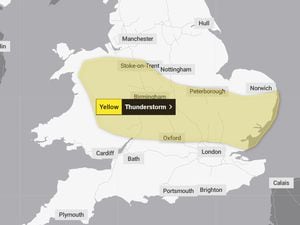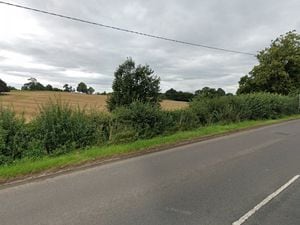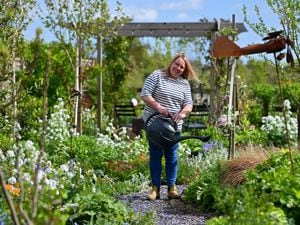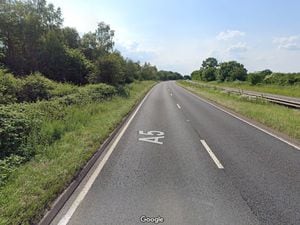More than 30 cannabis factories discovered by Staffordshire Police this year so far
More than 30 cannabis factories have been found by Staffordshire Police since the start of this year – and action to crack down on county lines dealing has reduced them to single figures.

A recent “county lines intensification week” saw 28 arrests – the joint highest the force has ever achieved during a week of action – it has been revealed.
Officers also seized more than £9,000 in cash, 32.1 grams of crack cocaine, 22.7 grams of heroin, eight grams of cocaine, 175 cannabis plants and two kilograms of cannabis, as well as weapons including flick knives, 'Rambo knives' and knuckledusters.
A report to Wednesday’s police performance meeting said: "It is not specifically the volume of arrests which made the week such a success but the high threat, harm (and) risk associated with some of the individuals which were arrested. Due to the way that we have continued to actively tackle county lines over the last two years, we have seen a reduction in the number of county lines impacting Staffordshire; from 12 in April 2022 to nine in April 2023.
“County lines are gangs and organised criminal networks involved in exporting illegal drugs into one or more areas within the UK, using dedicated mobile phone lines. They are likely to exploit children and vulnerable adults to move and store drugs and money and use coercion, intimidation, violence and weapons.”
The result was welcomed by Staffordshire’s Police, Fire and Crime Commissioner Ben Adams at Wednesday’s meeting. He said: "We’ve got a good record on county lines, it seems every time we talk about it it’s regionally recognised.
“That’s invisible in the main – organised crime units and regional crime – but quite often informed by people phoning in with intelligence reporting dealing. We encourage them to keep doing that.”
Chief Constable Chris Noble said: “Whilst not every county line is the same – you have to be careful counting numbers – not that long ago we had over 45 county lines we had mapped and we’re probably now down into single figures. Our focus is very much on the ones that are doing the most harm and doing the most business as well.
“That’s a positive testament to our proactive teams in-force, as well as occasions working regionally around it as well. But clearly we’re still seeing issues around child exploitation in particular, whether it be around county lines or other areas of acquisitive crime which involve safeguarding responses as well as investigative responses.”
The impact of illegal cannabis cultivation was also highlighted at Wednesday’s meeting. Since January, 35 have been identified in the area, including “large grows” in commercial buildings as well as in residential properties.
Chief Constable Noble said: “While it involves drug supply, it also involves some pretty vulnerable people who are working in those environments and some very unsafe environments. We have spoken a number of times about the fire risk these properties offer as well.
“Whenever we find one of these properties, some of them are industrial in every sense of the word. They can be on a massive scale and that will probably stymie a neighbourhood team or a large chunk of a pro-active team in an area for a couple of days in terms of how they close that down, secure it safely and seize cannabis plants.
“The challenge we have is we want to get as far up the food chain as we possibly can to deal with the people who are directing this, many of whom are potentially in another part of our region, another part of the country or further afield. Even though cannabis has many different people advocating for different levels of enforcement around it, whenever you look at the impact it has on human beings there is a whole raft of ways this is a concern for us – especially in certain parts of the county at the minute.
“We’ve got a particular op running with a really clear focus on not just discovering the factories, but supporting the people we find in them and working much harder with regional colleagues dealing with the brains behind the enterprises. These are the ones we really need to get into.”
Mr Adams said: “I keep reading about the service shutting down cannabis farms. It seems to be astonishingly common, but we seem to be good at it.
“It does stagger me there are some people who think even today that cannabis is a harm-free issue. There is no lack of harm just at the chain – either the people undergoing modern slavery to cultivate it or under threat to go and sell it, it’s all criminality, risk and violence.”





